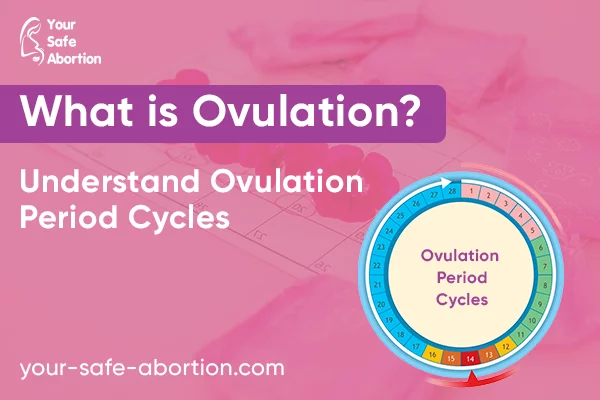
October 18, 2022 9:58
April 11, 2023 11:36
Ovulation: What Is It? Recognize the cycles of ovulation
When the ovarian follicle bursts to release the secondary oocyte ovarian cells, ovulation occurs in a woman’s body. It’s not as challenging as it sounds. If your menstrual cycle is regular, the occurrence is undetectable. So you notice that most healthcare professionals concentrate on regulating your menstrual cycle for optimal ovulation.
It would help if you worked to control your menstrual cycle to understand your ovulation period and cycle. The menstrual cycle heavily influences the timing of the period, which may occur anywhere between 12 and 18 days following the previous menstruation. It usually occurs on or around the fourteenth day after your last menstruation. You can determine your ovulation day with an accurate ovulation calculator that some pharmacies offer.
When the egg in the ovaries is released for fertilization, ovulation occurs. An egg is removed from the ovaries and travels via the fallopian tube. After a sexual encounter, fertilization may occur there. Sperm from the ejaculation might penetrate the released eggs during sexual activity. The woman’s chances of becoming pregnant may increase as a result. Ovulation is the process when the egg meets the sperm and is more likely to become fertilized. As a result, the embryo develops further, and the mother becomes pregnant. To stop unwanted pregnancy, you can buy Abortion Pills online.
How often should you have sex when you’re ovulating?
Gynecologists advise women to have sex five days before ovulation or on the day of ovulation to get pregnant. You may not get pregnant no matter how many times you have sex. However, having intercourse at the right moment may undoubtedly increase your chances of becoming pregnant. The first three days of this fertile period of five are when you are most productive.
A woman will instantly have lesser odds of becoming pregnant for that menstrual cycle by 12 to 24 hours following ovulation. The reason is that the egg is no longer in the fallopian tube. This does not imply that you cannot engage in unprotected sexual activity and will never get pregnant. Even when you’re less fertile, you should utilize contraception if you want to avoid an unexpected pregnancy.
You can locate a reliable internet pharmacy that can support you.
What are the Ovulation Signs?
- Minor cramping;
- Breast tenderness;
- Lower back bloating;
- Moderate cramping;
- High libido.
It is advisable to engage in sexual activity as soon to the ovulation day as possible if you are trying to become pregnant. Doing so will increase your chances of becoming pregnant. For example, for a woman with a 28-day cycle, sexual activity should occur on the 12th or 13th day of the cycle to increase the possibility of conception. You should see your gynecologist as soon as possible if you still have trouble becoming pregnant.
SUMMARY
To understand your ovulation period and cycle, you should make efforts to regulate your menstrual cycle. The period largely depends on the menstrual cycle and hence can take place anywhere between 12-18 days after the last menstruation. Ovulation occurs when the egg in the ovaries is released for the process of fertilization. When you have Sexual intercourse, sperm entered from the ejaculation can reach the released eggs. With this, the woman can have more chances of getting pregnant.
For a woman with 28 days, the menstrual cycle should have sexual intercourse on the 12th or 13th day. By 12-24 hours after ovulation, a woman will have a lower chance of getting conception for that menstrual cycle. If you wish to prevent unplanned pregnancy, you should definitely use contraception methods even when you’re less fertile.

 Français
Français